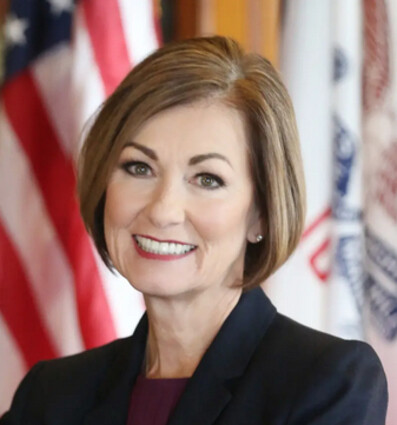S-N Editorial
Deviating from the norm isn't always good
November 16, 2023
Iowa Gov. Kim Reynolds turned heads this month when she endorsed Republican presidential candidate Ron DeSantis in the 2024 Iowa GOP Caucus. The Florida governor is currently sitting in second place (depending where you look) in polls, trailing significantly behind former President Donald Trump.
You can debate the significance of endorsements, but Reynolds' decision is certainly impactful – if not immediately, historically. Caucus endorsements from Iowa governors for presidential candidates on both sides of the aisle have been fleeting in the event's history. A majority of Iowa governors have opted to remain religiously neutral, as the plethora of candidates invading our state every four years has been a significant boon. Money is spent, voters get unique access to future presidents, and Iowa briefly becomes the epicenter of American politics. That's truly special for a state with only six Electoral College votes.
Reynolds has received her fair share of "arrows," as she calls them, for the decision to endorse DeSantis. Some Republican voters have wished she would've just stayed out of it, but the two-term governor has asserted that she "couldn't sit on the sidelines any longer." According to her, the former president "can't win" in 2024. Trump is livid like he always is, and posted to his social media platform Truth Social that the endorsement is simply "two extremely disloyal people getting together" and that "nobody else wants them!!!"
Trump's hissy fit aside, critics of Reynolds' decision are probably right. There is no real point in attempting to tip the scales when the benefits of doing so are few and far between. Following the initial endorsement, the only headlines coming from Iowa were about how angry Trump was regarding the governor's alleged disloyalty. If you ask him, he's the one that got her elected in the first place.
That's not true of course, because Reynolds is an extremely popular figurehead in Iowa Republican politics – a recent Des Moines Register/NBC News/Mediacom Iowa Poll showed her favorability rating at 81 percent among likely GOP caucusgoers. That type of popularity indicates Trump's previous endorsement of Reynolds in 2018 and subsequent attacks really don't matter to the people who elected her. They voted for her before, and if she's on the ballot in 2026, they'll do it again.
Those very electors appear to love Trump as well – the same poll found the former president was the No. 1 choice of 43 percent of likely caucusgoers. That's a lot considering there are presently eight GOP candidates running for the Oval Office. MAGA, Inc.'s stock price is still soaring in the Hawkeye State.
So what's the rub? Is Reynolds angling for a potential cabinet position? Does she want to be DeSantis' running mate? Does she just like being the center of attention? Who's to say, but many feel her attempts to influence the outcome of the 2024 Caucus overstepped her role in being a party ambassador for the Iowa GOP. Above all else, she's managed to ignite the temper of the frontrunner, who still holds significant clout in this state. It appears Reynolds doesn't care about that, which is commendable to a certain extent – kissing Trump's ring clearly isn't what it used to be.

SENTINEL-NEWS FILE PHOTO
Florida governor and current Republican presidential candidate Ron DeSantis visits the Valero Renewables' plant in Hartley during a campaign stop in August.
In the end, Iowa voters will cast the final verdict during the caucus like always. Reynolds' endorsement of DeSantis may play a slight role in the final outcome next year, but it would be best for future governors to put a sock in it and let the process play out by itself. Iowa Democrats already lost their first-in-the-nation caucus slot and Republicans don't need to give national party leaders any motivation to do the same. Ensuring an even playing field for all candidates is vital in holding national relevance in electing future presidents.


